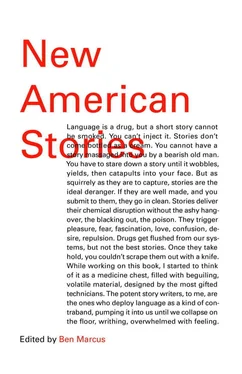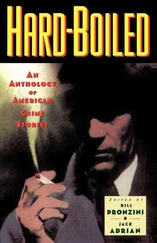After Come and See! there is a brief social period when packaged cheese and crackers and cheap wine are provided. There is always difficulty in opening the cheese packets. Someone always manages to spill wine.
Jeanette appears before me. After some consideration, I smile.
She says, “I’m sorry, I’ve forgotten your name.”
“That was my best wintery smile,” I say.
“Yes, it was quite good.”
I hope she thinks I would be a challenge, an insurmountable challenge.
Poor Pearl limps up. She has multiple sclerosis or something similarly awful and she begins talking about being with a number of her cats over the years as they died and it is not something she would wish on her vilest enemy and how she never learns from this experience and how it never becomes beautiful.
I leave the ladies to thrash this one out and exit through the courtyard, which is being torn up for some reason of regeneration. Or perhaps they’re just going to pave it over with commemorative bricks. Last year, Easter services were held in this courtyard because the sanctuary had been vandalized. Worshippers arrived for the sunrise service and found the sound system ripped out, flowers smashed, balloons filled with green paint exploded everywhere. Teenagers going through an initiation into some gang, probably. Several goats in some fellow’s yard were beaten and harassed that morning as well, the same group being responsible most likely, although the authorities claim there are no gangs in our town. No one was ever charged. The church would forgive them, that’s the way the church works, but the man who owns the goats is still upset. Perhaps the poor creatures were meant to be scapegoats in the biblical sense, cast into the wilderness of suffering with all the sins of the people upon their heads.
There is such evil in the world, so much evil. I believe Jeanette is evil, though maybe she’s more like one of those medically intuitive dogs they’re developing or exploiting. The dogs don’t suffer from their knowledge. That is, empathy is beside the point here; they can just detect that illness is present in a body before, sometimes long before, more standardized inquiry and tests confirm it. In Jeanette’s case, though some groundwork is undoubtedly required, she’s honing her instinct of arrival, appearing just before another is about to enter the incomprehensible refuge. She’ll be writing a book about her experiences next.
I leave the courtyard and commence my walk home. It’s not particularly pleasant but there is no alternative route, or, rather, the alternatives are equally dispiriting. Highways are being straightened and widened everywhere, with the attendant uprooted trees and porta-toilets for the workmen.
I navigate my passage across the first monstrous intersection, where a sign announces the imminent arrival of a dessert parlor named Better Than Sex. I would like to move to the country but the boy refuses. Besides, “the country” exists only in our fantasies anymore. When I was a child, the country was where overly exuberant family pets often found themselves. One of our dogs, Tank, who liked to wander and eat clothes and the dirt in flowerpots, was dispatched to the country, where he would have more room to run and play and do his mischief under the purview of a tolerant farmer. When I returned from school that afternoon, Tank was settling into his new home. My parents’ explanations and assurances became so elaborate that I knew something terrible was being withheld from me.
Above me, billboards advertise gun shows, mobile-telephone plans and law firms that specialize in drunk-driving cases. I looked into renting a billboard recently but my application was rejected.
THE GREATEST PROSPERITY COMES TO ITS END, DISSOLVING INTO EMPTINESS; THE MIGHTIEST EMPIRE IS OVERTAKEN BY STUPOR AMIDST THE FLICKER OF ITS FESTIVAL LIGHTS
— RABINDRANATH TAGORE
it would have said.
The billboard people told me they didn’t know who Rabindranath Tagore was and could not verify anything he might have thought. He was certainly foreign and his sentiments insurrectionary. As well, what he was saying wasn’t advertising anything. This night I see that space I tried to claim depicts black-and-white cows painting the words EAT MORE CHIKIN on the side of a barn.
I could far more easily drive to church and spare myself the discomfort of walking through this wasteland but I am in no hurry to reach home. I never know whom I will be coming home to, whether it will be mother, father, wife, or son. Often it is just my son, my boy, and matters are quite as they should be, but since the end of school things have become more volatile. We live alone, you understand, the child and I. He’s nine, and the changes in this decade have been unfathomable. Indeed, it’s a different civilization now. My parents, with whom we were very close, died last year. My wife left in the spring. She just couldn’t feel anything for us anymore, she said, and was only trying to salvage the bit of life she could.
Dusty pickups speed by, gun racks prominent. Gun racks in vehicles have surged in popularity. Even expensive sedans display cradled weapons, visible through lightly tinted windows. People know their names and capabilities like they used to know those of baseball players. Not my boy, though. He doesn’t know these things. He knows other things. For example, we planted a few trees in the yard after his mother left, fruit trees, citrus. The tree that bears the fruit is not the tree that was planted. He knows that, it goes without saying.
It’s almost dark now as I turn down our street. It’s garbage day tomorrow and my neighbors have rolled their vast receptacles to the curb. The bins are as tall as the boy and they contain God knows what, and over and over again.
The door is unlocked, the lights are on. “Hi, Daddy,” Colson says. He’s in the kitchen making sandwiches for supper. “Daddy,” he says, “we have to eat soon because I want to go to bed.” I’m not disappointed that he’s himself tonight, though more and more, given the situation, that self seems imaginary. He likes to play the Diné prayer songs tape as we eat, particularly the “Happy Birthday, My Dear Child” track. The chants are unintelligible but then the words Happy Birthday Happy Birthday to You arise in this morose intonation and he never tires of it.
In the morning my wife is in the yard, cutting back the orange tree. We rush out and prevent her from doing more. Summer is not the time to prune anything of course and we just planted the trees, they haven’t even adjusted to being in the soil yet with the freedom of their roots to wander. She dismisses our concerns but flings down the little saw, which I have never seen before, and leaves, though were you to ask if we actually saw her leave we would have to say no. The tree looks terrible and with small cries we gather up the broken buds and little branches. Still, it will survive. It has not been destroyed, we assure each other, at least not this day. There is no question of our planting a replacement. This would not be a useful lesson to learn.
Perhaps she is annoyed because, since her absence, Colson has seldom tried to invoke her except in the broadest terms. That is because, he explains, she is only gone from us, not from the world she still inhabits. I think her arrival this morning was a shock to him and I doubt she will visit us again.
I pick up the curved saw. It looks new but now blond crumbs of wood cling to its shiny serrated teeth.
“Should we keep this?” I ask Colson.
He frowns and shakes his head, then shrugs and returns to the house. He’s through with her. I wonder if somehow I have caused this latest unpleasantness. I have never known how to talk about death or the loss of meaning or love. I seek but will never find, I think.
Читать дальше










![Женя Джентбаев - neo futura [stories]](/books/692472/zhenya-dzhentbaev-neo-futura-stories-thumb.webp)

